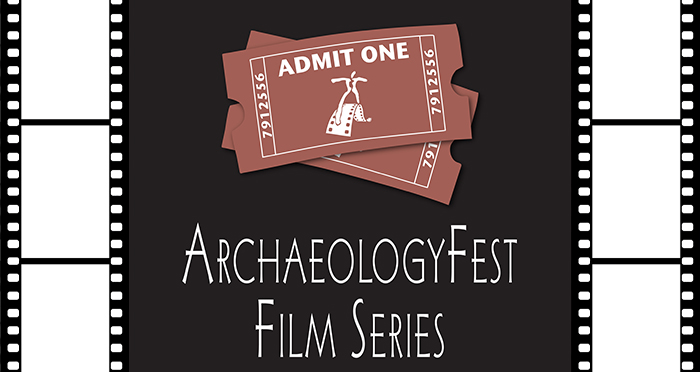Archaeological Legacy Institute and its partners around the State of Oregon will present the best films from the 2016 edition of The Archaeology Channel International Film and Video Festival. Archaeology Fest Film Series, Best of 2016, travels to venues in Eugene, Ashland, Portland and Bend between October 2016 and February 2017. Top-rated by the Festival jury and audience, these films are organized into two-hour evening programs.
Program A: February 17 (Friday), 7:30 pm
Roman Engineering: Cities (Spain) 51 min.
Rome served as the model for all the cities in its empire. City planners at the time used a standard model customized for the local setting. This documentary uses Tarraco, a medium-sized Roman city, to exemplify the fundamental factors were that affected how a new city was set up and how these decisions are reflected in the modern city built on top of it. Employing detailed and rigorous reconstructions of architecture and costume, the filmmakers reveal the ramparts, forums, the amphitheater and the great Roman theatre of Cartago Nova as living artifacts from a meticulously planned past.
Viking Women: Jova’s Heritage and the Fall of Haithabu (Germany) 52 min.
Jova lives as a servant in Denmark in the year 1064. One day she finds out that her father was a renowned warrior who set out to the east shortly after her birth and did not come back. From then on, Jova has only one thing on her mind: finding her father. She escapes from servitude, dresses up like a man and hires a ship that sails to the land of the Rus. The story of Jova leads us deep inside the fundamentally changing society of the Vikings. Christianity’s influence gains prominence through exposure to different cultures via trading. But Christianization and the emerging kingdoms are both blessing and curse: they herald the destruction of Viking culture.
Program B: February 18 (Saturday), 7:30 pm
The Jewish Cemetery (USA) 50 min.
German retired teacher and historian Otmar Weber introduces us to a little known part of the German-French borderlands known as the Wasgau, where rural Jewish populations lived and thrived for 300 years until National Socialism drove them out in the 1930s. Through interviews and personal accounts, we discover who these German Jewish families were, what is left behind from their lives and where they went. The Jewish Cemetery is seen and told in the seldom visited hinterlands of an old Europe that has changed remarkably little.
Monuments Revealed: Petra, Capital of the Desert (France & USA) 86 min.
Located in the middle of one of the driest places on earth, the civilization of Petra left behind spectacular monuments carved into the sandstone cliffs. We now know that a prosperous and cultivated city of nearly 30,000 people stretched out from the base of the mountains and that water was abundant. Petra, the capital of the Nabataean kingdom built more than 2000 years ago, is the paradoxical work of desert nomads. Another large site located 500 kilometers away in Saudi Arabia has similar rock-cut monuments. This history of Petra, as well as that of the people who built and lived there for nearly 800 years, is gradually emerging from the sand.
Program C: February 24 (Friday), 7:30 pm
Stolen Warriors (Germany) 52 min.
How does Cambodia’s most famous temple statue end up in Sotheby’s auction catalogue? This film tells the story of a spectacular case of art robbery and international intrigue. From the sun and rain in Southeast Asia to the murky backrooms of art smugglers, we follow the route of an iconic warrior sculpture looted from a Khmer temple to a posh auction house in New York. Stolen Warriors is about more than a missing statue: it is an investigative journey into the morally compromised world of the antiques trade.
First Footprints (Australia) 53 min.
First Footprints tells how the Aboriginal people became the oldest living culture in the world. Across Australia there are over 10 million prehistoric paintings, engravings and archaeological sites. The continent is one giant canvass telling an epic story of endurance in the face of terrifying megafauna, catastrophic droughts, rising sea levels and massive climate shifts that caused both conflict and phenomenal cultural output over tens of thousands of years. For the first time, new archaeological discoveries, stunning rock art, a wealth of never-before-seen archival footage and cinema-quality CGI reveal the epic story of 50,000 years of life in Australia.
Program D: February 25 (Saturday), 7:30 pm
The X-ray Time Machine (UK) 26 min.
The Antikythera Mechanism is one of the most extraordinary discoveries from the ancient Greek world: a 2000-yearold astronomical calculating machine of great complexity. It is now split into many corroded bronze fragments. Despite more than a hundred years of research since its discovery in 1901 by Greek sponge divers, many of its deepest secrets remained hidden—until they were uncovered by a brilliant team of X-ray engineers, combined with a new team of research scientists. Now, for the first time, we can delve deeper into the meaning and function of this extraordinary artifact and start to understand what it really is.
Monuments Revealed: The Secrets of the Colosseum (France & USA) 86 min.
The enduring icon of the Eternal City for the last 2000 years, the Colosseum was ancient Rome’s architectural masterwork. Its graceful and harmonious proportions concealed a highly efficient design, advanced construction methods and state-of-the-art plumbing and sewage. But the Colosseum was also a mighty monument to Roman imperial power and cruelty. The spectacles staged there involved the killing of tens of thousands of gladiators, slaves, prisoners, and wild animals. Join us as we explore the dual nature of this glorious ruin that so closely tracks the genius and cruelty of the Romans.
www.archaeologychannel.org/festival
A benefit for The Archaeology Channel
International Film Festival
Boyle Education Center, Rm. 155
2600 NW Main College Way, Bend
February 17-25
Programs begin at 7pm on dates indicated. Admission $7. These are the best films from the 2016 edition of TAC Festival.

